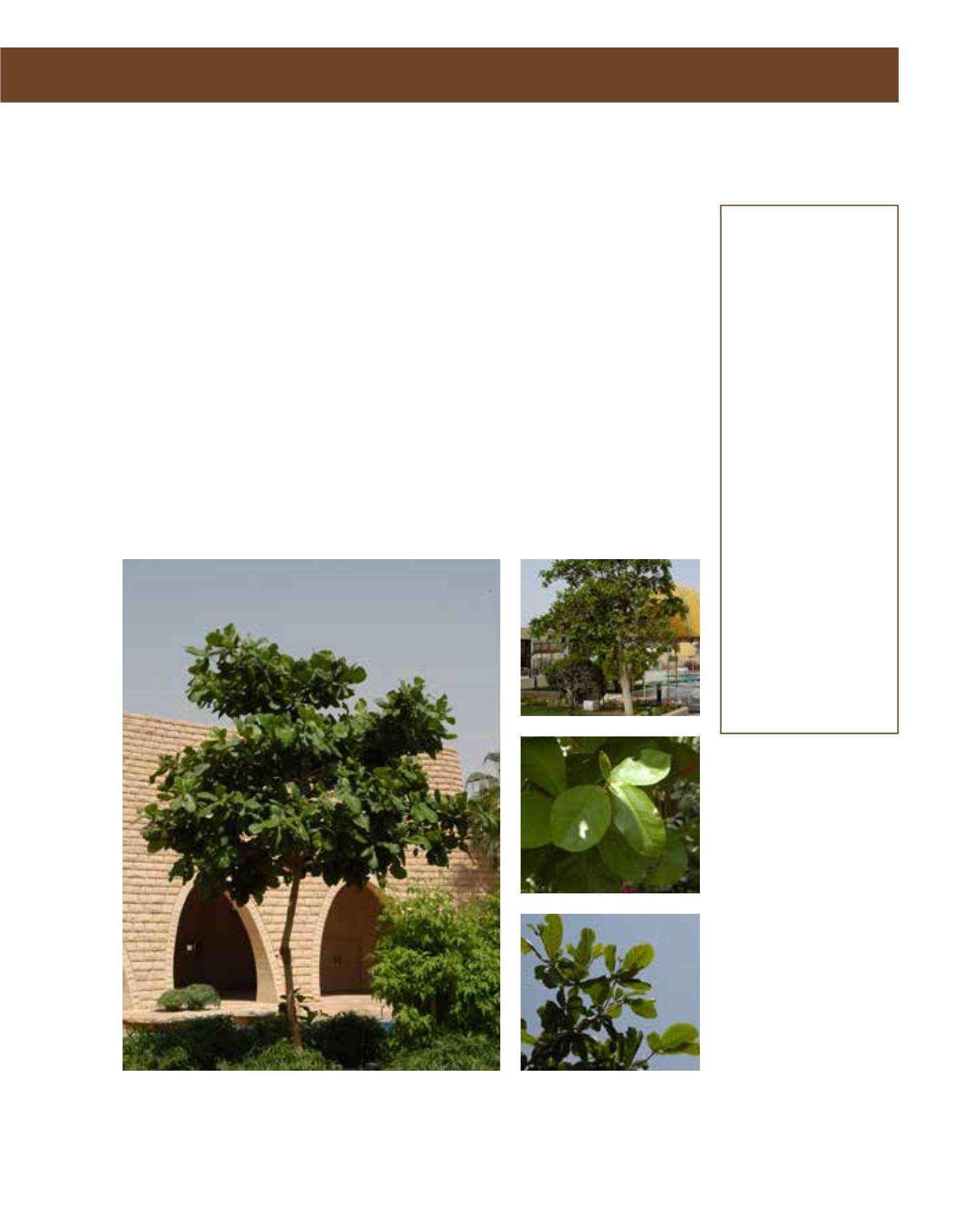

GENERAL
Origin
:
tropical
Humidity
:
very humid,
extremely humid
Propagation :
sowing and
pricking out
Maintenance :
moderate
CONDITIONS
Urban climate :
vulnerable
Dessication :
vulnerable
Stagnant water :
vulnerable
Irrigation
:
high
Salinity/ppm :
high (4500 ppm)
Hardiness
:
+6°C
SHAPE
Type
:
tree
Height
:
10 m-20 m
Spread
:
10 m-18 m
Foliage
:
deciduous
FLOWER
Colour
:
light yellow, light
pink
Size
:
1 cm
Period
:
April - May
Smell
:
malodorous,
flower
FRUIT
Type of fruit :
silique
Fruit size
:
3 cm - 6 cm
Toxicity
:
edible, fruit
The Indian Almond Tree, or lawz bajali in Arabic, is widespread in the tropics. In Arriyadh, it is
not always successful, owing to low humidity, but in a sheltered environment, where other plants
are irrigated, growth and foliage are much better. An ornamental tree, it grows up to 20 metres
in height, with a characteristic pagoda shape, symmetrical crown and horizontal branches. The
bark is grey-brown and vertically fissured; the tree has spreading, near-surface, fibrous roots.
The large leaves are up to 25 cm long and 15 cm broad, ovoid, glossy dark green and leathery. T.
catappa is deciduous and loses its leaves twice each year; before falling, they turn dark red. The
yellowish, inconspicuous flowers with an unpleasant smell are produced on spikes. T. catappa has
a red, edible fruit, when fully ripe tasting like an almond. It prefers moist, well-drained, sandy
and loamy soils, but is adapted to a wide range of substrates, including saline and alkaline sands
over limestone. Tolerant of periods of drought, it sheds leaves to withstand dry spells. The tree
is damaged by frost. Plants are susceptible to termite attack; leaves may be attacked by various
insects and larvae. T. catappa is a good species for park and garden shade, and makes a good
windbreak. It needs to be pruned regularly to control its size: the main leader may be cut at the
top to create a wide-spreading specimen. For a tidy appearance, the leaf and fruit litter need to be
removed regularly. In suitable environments, it flourishes with minimal maintenance.
298
Terminalia catappa,
Combretaceae
Indian Almond,
Olive Bark Tree, lawz bajali, hindi bedm
















